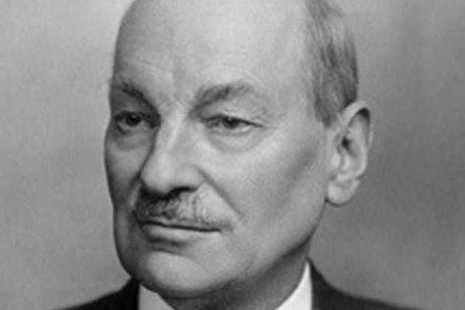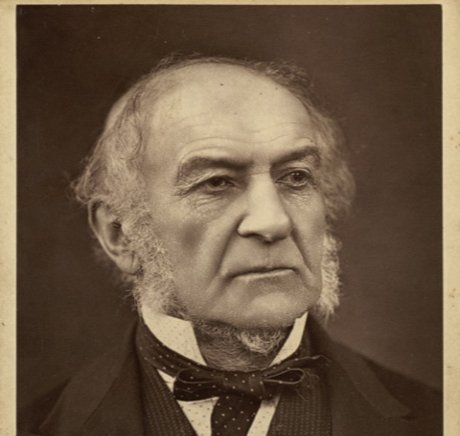Clement Attlee was a pivotal figure in British politics. His leadership shaped modern Britain.
As the Prime Minister from 1945 to 1951, he led the Labour Party to establish the welfare state. Attlee’s government introduced groundbreaking reforms. The National Health Service, social security, and nationalization of industries were significant achievements. These changes transformed the lives of millions in the UK.
Understanding Clement Attlee’s impact is crucial. His policies laid the foundation for today’s social systems. Attlee’s vision aimed to reduce inequality and improve living standards. He believed in a fairer society where everyone had access to health and education. His leadership style was humble yet effective, focusing on consensus and collective effort. Exploring Attlee’s legacy offers insights into how visionary leadership can bring lasting change. Discovering his story reveals the enduring influence of his ideals on modern governance.
Early Life
Clement Attlee, a prominent British politician, had a fascinating early life. He became one of Britain’s most influential Prime Ministers. His journey began in a modest household, shaping his future.
Family Background
Clement Attlee was born on January 3, 1883, in London. He was from middle-class family. His father, Henry Attlee, worked as a solicitor. His mother, Ellen, was a devoted homemaker. The Attlee family valued education and hard work. They instilled these values in Clement from a young age.
Education
Attlee attended Haileybury College, a prestigious school. There, he excelled in academics and sports. His teachers praised his diligence and leadership skills. After Haileybury, he went to Oxford University. At Oxford, he studied history and modern languages. He became active in social causes and politics. His education laid the foundation for his future career.

Credit: www.gov.uk
Political Beginnings
Clement Attlee’s political journey began with his election to Parliament in 1922. As a Labour Party member, he focused on social welfare and workers’ rights. His leadership skills eventually led him to become Prime Minister, shaping post-war Britain with his progressive policies.
Clement Attlee’s journey in politics is a fascinating tale of dedication and vision. His initial steps into political life laid the foundation for his future leadership, shaping the Labour Party and the nation.
Entry Into Politics
Attlee’s entry into politics was driven by a desire to bring about change. He began his career as a social worker in London’s East End. This experience exposed him to the harsh realities of poverty and inequality.
In 1922, Attlee was elected as the Member of Parliament for Limehouse. He joined the Labour Party, which was gaining momentum at the time. His work in Limehouse showcased his commitment to improving living conditions.
Is there a cause that drives you to take action? Attlee’s passion for social justice propelled him into political life. His early experiences shaped his views and strengthened his resolve to fight for the underprivileged.
Rise In Labour Party
Attlee’s rise in the Labour Party was marked by determination and strategic thinking. He quickly became a prominent figure, known for his calm demeanor and effective leadership.
In 1935, Attlee was elected as the Deputy Leader of the Labour Party. His leadership skills were evident during World War II, where he served as Deputy Prime Minister in Churchill’s coalition government.
By 1945, Attlee led the Labour Party to a historic victory. Under his leadership, the party introduced transformative policies, including the creation of the National Health Service.
What do you think is the key to effective leadership? For Attlee, it was a combination of vision, empathy, and a strong commitment to public service.
Attlee’s political beginnings remind us that great leaders often start with humble origins. His journey from social worker to Prime Minister highlights the impact one individual can have on society.
Are you inspired by Attlee’s story? Perhaps it’s time to think about the changes you want to see and how you can contribute to making them happen.
World War II Contributions
Clement Attlee played a crucial role during World War II. His leadership and collaboration were vital for the wartime government’s success. He worked closely with Winston Churchill, shaping strategies that led to victory. His contributions were instrumental in guiding the nation through one of its darkest hours.
Role In Wartime Government
Attlee served as Deputy Prime Minister in Churchill’s coalition government. He managed domestic affairs, ensuring stability on the home front. He was responsible for overseeing essential services and supplies. His efforts kept the country running smoothly during turbulent times.
Attlee’s leadership extended to social reforms. He pushed for better welfare and healthcare systems. These measures boosted morale and supported those affected by the war. His dedication to public welfare was unwavering.
Collaboration With Churchill
Attlee and Churchill formed a formidable partnership. Despite their political differences, they worked together seamlessly. Attlee provided strategic input and supported Churchill’s decisions. Their teamwork was crucial in winning the war.
Attlee’s calm demeanor complemented Churchill’s fiery spirit. They balanced each other, creating a strong leadership dynamic. This collaboration ensured effective decision-making and strong wartime strategies. Attlee’s contributions were indispensable to Churchill’s leadership.

Credit: www.britannica.com
Becoming Prime Minister
Becoming Prime Minister is a pivotal moment in the career of any politician, and for Clement Attlee, it marked the beginning of a transformative period in British history. As you delve into his ascent to power, you’ll discover how the 1945 election and the formation of his government laid the groundwork for profound changes. Attlee’s leadership was not just about political maneuvering; it was about envisioning a better future for Britain. So, what can you learn from his approach to leadership and governance?
1945 Election
The 1945 election was a watershed moment. After years of wartime leadership under Winston Churchill, Britain was ready for change. Attlee’s Labour Party presented a vision that resonated with voters.
Imagine living in a time when rebuilding a nation was not just a dream but a necessity. Attlee seized this moment, offering a platform that promised social reform and economic renewal. His message was clear and direct, speaking to the needs and aspirations of everyday people.
How often do you see a political campaign that genuinely connects with the public’s hopes? Attlee’s success was rooted in understanding what people wanted and needed. As voters cast their ballots, they were choosing a future of possibility and growth.
Formation Of Government
With the election victory in hand, Attlee faced the monumental task of forming a government. This was not just about assigning positions; it was about building a team capable of delivering change.
Attlee’s government was a tapestry of diverse talents, each member contributing unique strengths. He understood the importance of collaboration, ensuring that his cabinet was equipped to tackle the challenges ahead.
Consider the importance of teamwork in your own life. Attlee’s approach was a testament to the power of collective effort. His government embarked on ambitious projects, from establishing the National Health Service to nationalizing key industries.
What can you learn from Attlee’s leadership style? His ability to unite people towards a common goal was crucial to his success. As you reflect on your own endeavors, remember the significance of building a strong, cohesive team.
Domestic Policies
Clement Attlee’s domestic policies transformed post-war Britain. His government focused on social welfare and economic reforms. These policies aimed to improve living standards for all citizens. Attlee introduced measures that shaped modern Britain.
National Health Service
The National Health Service (NHS) became a landmark achievement. It provided healthcare for all British citizens. Funded by taxes, the NHS aimed for equal access to medical services. Before the NHS, many could not afford healthcare. With its introduction, healthcare became a right, not a privilege. This policy improved public health significantly.
Housing Reforms
Attlee’s government tackled the housing crisis with urgency. Many homes were destroyed during World War II. New housing policies aimed to provide affordable homes. The government built numerous council houses. These homes were affordable for working-class families. This policy addressed homelessness and improved living conditions. It also created jobs in construction and related industries.
Economic Impact
The economic impact of Clement Attlee’s government was profound and lasting. His leadership during the post-war era reshaped Britain’s economy. This section delves into key areas of his economic policies.
Post-war Recovery
After World War II, Britain faced significant economic challenges. The war had drained resources and left industries in disrepair. Clement Attlee’s government took swift action to address these issues. They implemented policies to stabilize the economy and promote growth. These efforts included rebuilding infrastructure and investing in essential services. The focus was on creating jobs and improving living standards.
Nationalization Of Industries
One of Attlee’s most notable policies was the nationalization of key industries. This move aimed to control critical sectors like coal, steel, and railways. The government believed nationalization would ensure fair distribution of resources. It also aimed to improve efficiency and reduce inequality. By taking control of these industries, Attlee’s government hoped to create a more stable economy. This strategy played a crucial role in Britain’s post-war recovery.
International Influence
Clement Attlee’s leadership extended beyond the borders of the United Kingdom. His international influence shaped world politics and global relations. Attlee’s government played a pivotal role in many significant international events. His policies and decisions left a lasting impact on global affairs.
Role In United Nations
Attlee’s government was instrumental in the formation of the United Nations. The UK, under Attlee, was a founding member of this global organization. His administration supported the UN’s mission to maintain peace and security. Attlee believed in international cooperation and collective security. This belief influenced his strong support for the United Nations.
Attlee’s influence helped shape the UN’s early policies. He advocated for human rights and social justice on the global stage. His commitment to these principles was evident in the UK’s active participation in the UN.
Decolonization Efforts
Attlee’s tenure marked significant decolonization efforts. He oversaw the independence of India and Pakistan in 1947. This was a monumental step in the end of British colonial rule. Attlee’s government also worked towards the independence of other colonies.
He believed in self-determination for all nations. His policies aimed to transfer power peacefully and responsibly. Attlee’s decolonization efforts set a precedent for other colonial powers. His legacy in this area remains a significant part of his international influence.
Legacy And Recognition
Clement Attlee’s legacy is marked by his transformative impact on British society. His tenure as Prime Minister saw the establishment of the NHS and major social reforms, earning widespread recognition.
Clement Attlee, the post-war Prime Minister of the United Kingdom, left an indelible mark on British society and politics. His tenure from 1945 to 1951 was transformative, shaping the nation’s social, economic, and political landscapes. Attlee’s legacy is still felt today, and his recognition as a pivotal figure in British history is well-deserved. But what makes his impact so enduring, and how do people view him now?
Public Perception
Clement Attlee’s public perception has evolved over the decades. Initially, some underestimated him due to his quiet demeanor. But don’t let that fool you—Attlee was a leader of action.
His leadership during the establishment of the National Health Service (NHS) is a key highlight. Imagine living in a time when healthcare was not accessible to all. Attlee’s government made healthcare a right, not a privilege.
Surveys and historical analyses often rank him among the top British Prime Ministers. Have you ever considered how public opinion can change with time? Attlee’s reputation has grown as people recognize the depth and breadth of his reforms.
Long-term Impact
Attlee’s policies laid the groundwork for modern British welfare systems. The NHS is a testament to his vision, providing healthcare services to millions.
He also nationalized major industries, aiming to redistribute wealth and reduce inequality. This move sparked debates that continue to this day. What do you think about state ownership versus private enterprise?
Education reforms under his leadership expanded opportunities for many, setting a precedent for future governments. His influence extended beyond borders, with decolonization efforts shaping global politics.
His legacy prompts us to reflect on how leadership and policy can create lasting change. Are you aware of leaders today who embody Attlee’s commitment to social justice?
FAQs
What Was So Significant About Clement Attlee?
Clement Attlee was significant for leading the Labour government that established the NHS and welfare state in post-war Britain. He also nationalized key industries and implemented major social reforms.
Who Was Britain’s Greatest Prime Minister?
Britain’s greatest prime minister is often considered to be Winston Churchill. He led the country during World War II.
Who Was The Most Successful Labour Prime Minister?
Clement Attlee is considered the most successful Labour prime minister. He led significant reforms, including establishing the NHS and nationalizing key industries.
What Was Clement Attlee’s Famous Quote?
Clement Attlee’s famous quote is: “Democracy means government by discussion, but it is only effective if you can stop people talking. “
Conclusion
Clement Attlee’s legacy remains significant in modern history. His leadership transformed Britain post-war. Attlee’s policies shaped the welfare state. He championed social justice and equality. His impact still inspires political leaders today. Learning about Attlee helps us understand political progress.
His story is a reminder of dedication and service. Attlee’s life and work continue to be relevant and inspiring. Reflecting on his achievements offers valuable lessons for the future.








